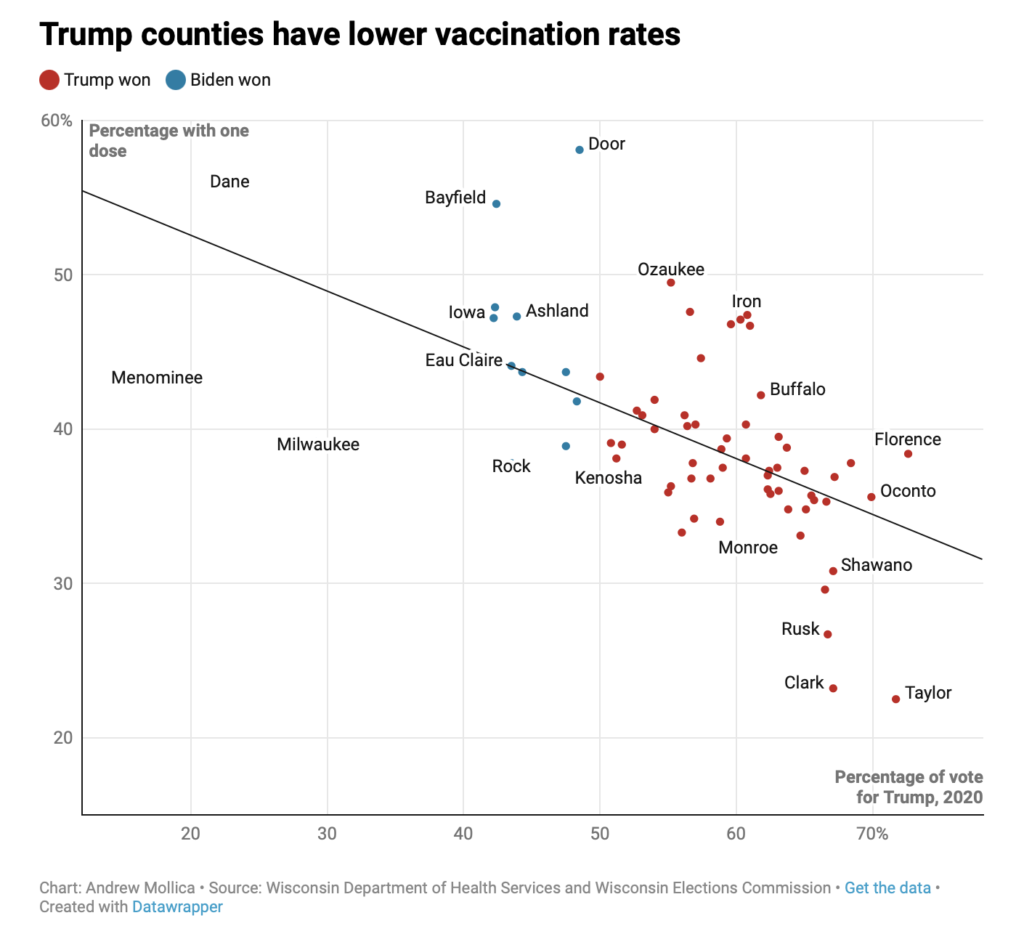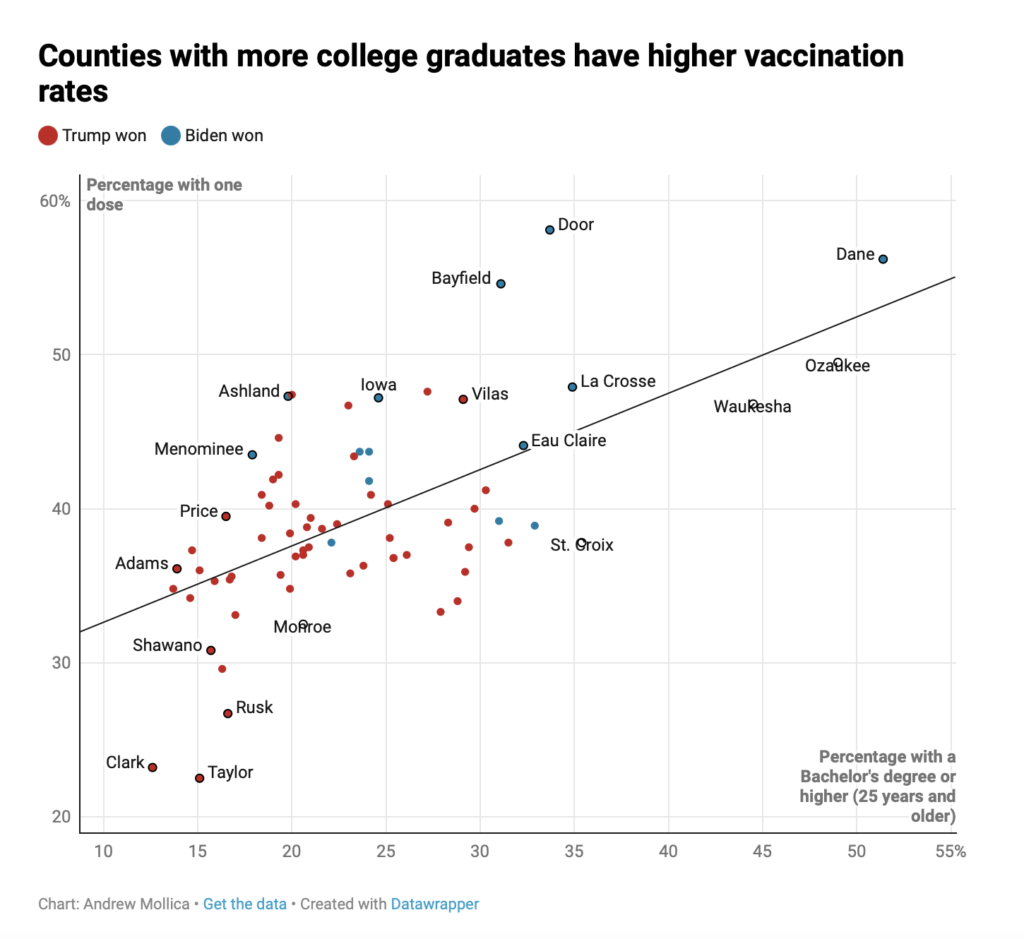Saturday in Whitewater will be partly sunny with a high of 83. Sunrise is 5:47 AM and sunset 7:56 PM, for 14h 09m 10s of daytime. The moon is a waning gibbous with 74.8% of its visible disk illuminated.
On this day in 1898, at the Battle of Manila Bay, the Asiatic Squadron of the United States Navy destroys the Pacific Squadron of the Spanish Navy after a seven-hour battle.
Recommended for reading in full —
Danielle Kaeding reports Enbridge Could Face Millions In Penalties For Failing To Report Spill In Fort Atkinson:
Canadian firm Enbridge, Inc. could face millions of dollars in fines after the company failed to report a leak on one of its oil pipelines in Jefferson County for more than a year.
The Wisconsin Department of Natural Resources is alleging Enbridge violated Wisconsin’s spills law for not promptly reporting a release that occurred on its Line 13 pipeline April 26, 2019, in Fort Atkinson. The 20-inch pipeline runs from Manhattan, Illinois, through Wisconsin to Edmonton in the Canadian province of Alberta.
State law requires entities to immediately report discharges of hazardous substances by calling the DNR’s 24-hour hotline.
“Enbridge failed to report the hazardous substance discharge to the department until July 31, 2020,” wrote the agency in an April 27 letter.
Up to 1,386 gallons of diluent liquids leaked from the pipeline, contaminating groundwater and soil in the area. Enbridge said the substance is similar to camping fuel and is used to thin out heavy crude oil carried through the company’s pipelines.
Marc Fisher reports From memes to race war: How extremists use popular culture to lure recruits:
The far-right groups that blossomed during Donald Trump’s presidency — including white supremacists, self-styled militias and purveyors of anti-government conspiracy theories — have created enduring communities by soft-pedaling their political goals and focusing on entertaining potential recruits with the tools of pop culture, according to current and former members of the groups and those who study the new extremism.
….
“All these people who stormed the Capitol and later said, ‘What did I do wrong? I didn’t think it was illegal’ — they want what we all want: belonging, friendship, cultural meaning,” said Robert Futrell, a sociologist at the University of Nevada at Las Vegas who studies white-power movements. “We gloss over that too often, but in any movement, there’s a festival atmosphere. They gain a feeling of power from being surreptitiously connected through things they enjoy, like music. This is much more complex than just an ideological movement.”
Before conspiracy theories take root, before people decide to break the law because they think society is somehow rigged against them, there is first a bonding process, a creation of connection and camaraderie that encourages members to believe they will now be privy to answers that outsiders cannot know or understand.
….
“The pandemic has meant people have more time, more attention span,” Futrell said, “and that time is clearly being directed into extremist spaces. The appeal of a video like ‘The Last Battle’ is that it’s all emotion. At first, they’re pro-Trump images, juxtaposed against a Biden dystopia. But by the end of the five minutes, it conveys a sense of White genocide. Arm up and train up and have babies, it says, or the White way of life is gone.”
Ingenuity sees Perseverance, 3 rockets launch (in 2-hour span) & more:
The Ingenuity helicopter captured imagery of the Perseverance rover on Mars during its 3rd flight. In the span of 2 hours, China launched a new space station module, SpaceX launched a new batch of Starlink satellites and an Arianespace Vega rocket returned to flight. Also, SpaceX’s Starship SN15 was seen being prepared for flight and a zoom-in of ‘campfires’ on the sun was released.



